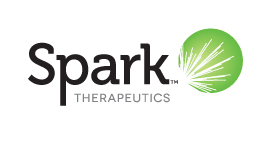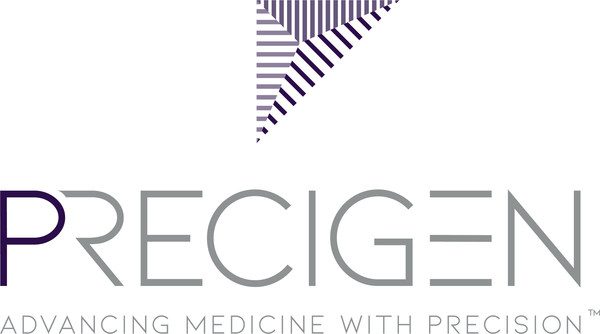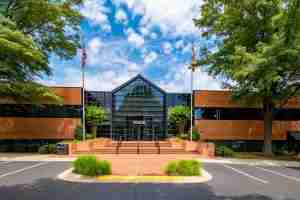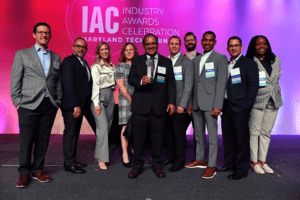
Investors Eye Gene Therapy Companies and Rapidly Expanding Market
Five Publicly Traded Gene Therapy Companies
The cell and gene therapy market has seen an explosion of growth over the past several years as “what if” medications are now becoming a gold standard of treatment for certain indications in rare diseases and oncology.
“It is an exciting time for gene therapy, which can address a range of conditions from spinal muscular atrophy, to certain types of blindness and even HIV,” shared John Vandermosten, Senior Biotechnology Analyst in a recent analysis of FDA Gene Therapy Approvals.
In 2020, the global market for cell and gene therapies hit a high of $4.3 billion and, according to analyst predictions, will only continue to grow. According to a forecast from ResearchandMarkets.com, the market is expected to increase to $15.48 billion by 2025 and then to $34.31 billion by 2030. Cell and gene therapy developers in Maryland and Philadelphia are at the forefront of this revolution in therapeutic approaches to rare and chronic diseases and in oncology.
Within the Maryland and Philadelphia areas, there are five publicly traded gene therapy companies that are making a significant impact on the market, including one with an approved product, as well as one whose platform has become widely used across the industry. REGENXBIO’s proprietary NAV Technology Platform was used in the development of Novartis’ Zolgensma, a gene therapy for spinal muscular atrophy. Philadelphia’s Spark Therapeutics won approval for Luxturna in 2019, a gene therapy for a rare form of blindness. Precigen and Passage Bio are also advancing their gene therapies. AVROBIO is making advances in developing gene therapies for lysomal diseases, including Fabry and Gaucher.
There has definitely been keen interest shown in these innovative approaches not only by global regulators who are opening up new designations and regulatory support for these medications, but large pharmaceutical companies are also beginning to invest in their own programs, or through M&A activity, such as Swiss pharma giant Roche’s 2019 acquisition of Spark Therapeutics.
Not only are regulators and investors paying attention to cell and gene therapies in development, so too are patients who are hoping and praying for highly efficacious treatments that, in some cases, are one-time remedies. For example, Novartis’ Zolgensma is a gene therapy approved for spinal muscular atrophy. Although it has a list price of $2.1 million, the treatment so far appears to be a one-time necessity for SMA patients. The cost of the treatment seems exorbitant at first glance. However, it is estimated that the current 10-year costs of SMA treatment are in excess of $4 million. There have only been two other treatments approved by the U.S. Food and Drug Administration for SMA – Biogen’s Spinraza and Genentech’s Evrysdi. Both of those drugs have annual costs of more than $300,000 and will require years of treatment.
Read Also: Five Companies That Are Changing the Landscape for Cell and Gene Therapy
With the success of already approved gene and cell therapies, or those nearing regulatory approval in the U.S. and abroad, it’s no wonder investors are paying close attention to companies in this field that have gone public, or could soon go public. The aforementioned Spark Therapeutics drew significant interest from Roche not only for Luxturna, but also for its promising gene therapy for hemophilia, which the company saw as complementary to its own pipeline. North Carolina-based Asklepios BioPharmaceutical, Inc. (AskBio) was snapped up by Bayer in 2019 for its AAV gene therapy program in Parkinson’s disease.
Another company that could cause big pharma to begin flexing its M&A muscles is American Gene Technologies, which recently induced its first patient in a Phase I study of a cell therapy for HIV. In preclinical studies, AGT103-T, a genetically modified cell product, demonstrated the ability to clear HIV and HIV-infected cells. The Rockville, Maryland-based company maintains its cell therapy will ultimately be able to restore the ability of a patient’s immune system to remove infected cells and decrease or eliminate the need for lifelong antiretroviral treatment. AGT’s executives believe that when the Phase I study is completed, they will be able to determine whether or not patients who received the cell therapy will be functionally cured, meaning the patient will no longer demonstrate disease symptoms and will not be able to transmit the virus.
In addition to HIV, AGT is also developing gene therapies for Phenylketonuria and solid tumor forms of epithelial cancer.
Another company to watch is Philadelphia-based, Aro Biotherapeutics which is pioneering the development of tissue-targeted genetic medicines with a platform based on a proprietary protein technology called Centyrins that enables precise receptor-mediated delivery of RNA drugs to address intracellular gene targets. They completed an $88 Million Series A financing in January 2021, and this August they announced the expansion of their leadership team and plans to move their headquarters to the Curtis in Philadelphia to accommodate their growth plans.
Here are the 5 Publicly Traded Gene Therapy Companies
REGENXBIO

Location: Rockville, Maryland
REGENXBIO’s NAV Technology Platform, a proprietary adeno-associated virus (AAV) gene delivery platform, consists of exclusive rights to more than 100 novel AAV vectors,
IPO: RGNX (Nasdaq) raised $159.4 million in its 2015 IPO
Current Price: $31.45 with 2021 high of $49.95 on Jan. 14
Approved Products: No in-house developed gene therapy approved as of yet. However, the company’s proprietary NAV Technology Platform was used in the development of Novartis’ Zolgensma, a gene therapy for spinal muscular atrophy.
Spark Therapeutics

Location: Philadelphia
Spark Therapeutics, now a division of Roche, is developing gene therapies for multiple genetic diseases, including blindness, hemophilia, lysosomal storage disorders and neurodegenerative diseases. The company has four programs in clinical trials.
IPO: ONCE (Nasdaq), now a division of Roche, secured $161 million in its 2015 IPO.
Current Price: N/A The stock is no longer publicly traded since the company was acquired by Swiss pharma giant Roche in 2019.
Approved Products: Luxturna (voretigene neparvovec) is a gene therapy for a rare, genetic form of blindness.
Precigen

Location: Germantown, Maryland
Precigen uses precision technology to target the most urgent and intractable diseases in its core therapeutic areas of immuno-oncology, autoimmune disorders, and infectious diseases.
IPO: PGEN (Nasdaq) raised $112.5 million in January, 2021 with a share price of $7.50. However, the company originally went public as Intrexon in 2013 raising $160M in an IPO on the NYSE as XON. The company changed its name to Precigen, Inc. from Intrexon Corporation in 2020.
Current Price: $5.80 with a 2021 high of $10.95 on Jan.5.
Approved Products: The company has not won approval for any therapeutics, but its proprietary UltraPorator system was cleared by the FDA in October 2020 to boost the manufacturing of UltraCAR-T therapies.
Passage Bio

Location: Philadelphia
Passage Bio is developing Gene therapies for patients with CNS diseases. The hope is to develop a gene therapy that replaces patient suffering with what the company hopes will be “boundless possibility.”
IPO: PASG (Nasdaq) raked in $216 million in its 2020 IPO
Current Price: $11.55 with a 2021 high of $29.83 on Jan. 14
Approved Products: N/A/ In 2020, the FDA granted Rare Pediatric Disease designation to its gene therapy candidate PBGM01 for the treatment of GM1 gangliosidosis.
AVROBIO

Location: Cambridge, Mass.
The company is developing lentiviral-based gene therapies for lysomal diseases, including Fabry, Gaucher type 1 and cystinosis. AVROBIO uses its plato gene therapy platform to develop its programs.
IPO: AVRO (Nasdaq) raised $114 million in its 2018 IPO.
Current Price: $6.24, with a 2021 high of $19.30 on Feb. 8.
Approved Products: N/A
Other BioBuzz Coverage: Why Philadelphia is Poised to Become a Top Cell and Gene Therapy Cluster




